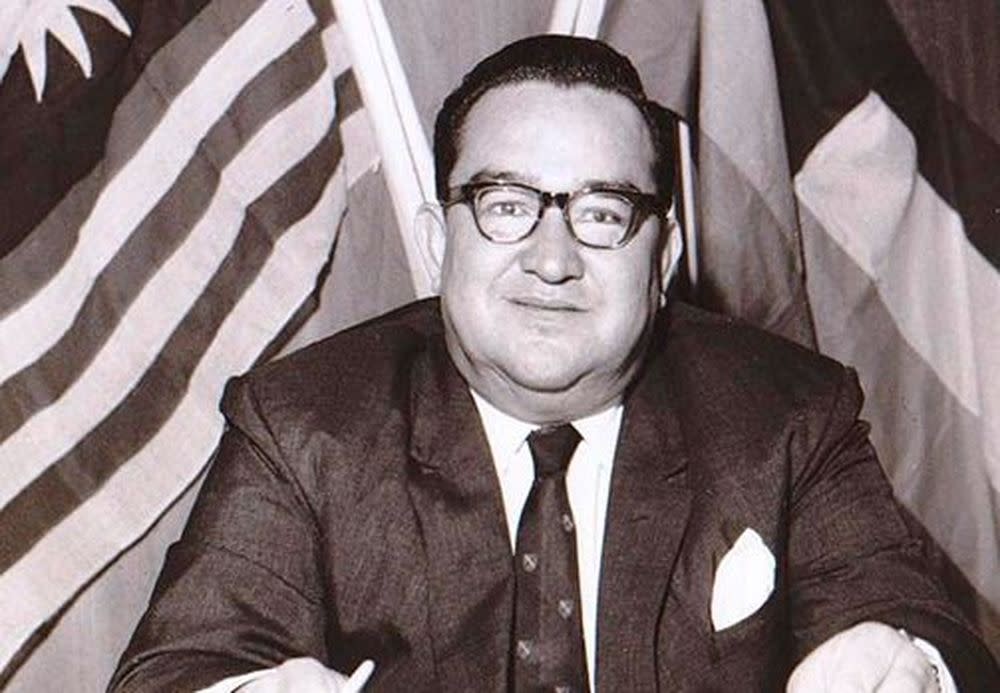Fuad Stephens’ family suspicious of Oz report on Double Six crash due to plane maker’s ‘conflict’

KOTA KINABALU, April 30 — The family of the late Tun Fuad Stephens has questioned the veracity of latest declassified report on the Double Six tragedy, casting doubt on findings prepared by the manufacturer of the crashed plane.
The three surviving children of the then-Sabah chief minister, who was among 11 people killed in the 1976 crash of the Sabah Air Nomad GAF N-22B, said they suspected the integrity of the report as the manufacturer could have a motive to minimise responsibility.
The “Report by GAF Investigating Team on the Crash of a Sabah Air Nomad 9M-ATZ” was released last week as part of the Australian government’s declassification of its own investigation, after Malaysia did so earlier.
“There is clearly a conflict of interest here. The situation is akin to someone being the judge on a murder trial in which they are a suspect,” said Faridah, one of the siblings.
She said that although it was common practice to include the manufacturers in crash investigations, there should be clear safeguards to ensure integrity and prevent bias.
“The GAF manufactured the planes and the government of Australia owned the GAF. However, this clear conflict of interest should have been watched and overseen with a very high degree of diligence and care,” she said.
The Australian side of the investigating team comprised the two accredited representatives from the country’s Department of Transport and two people from the Government Aircraft Factory, which manufactured the plane.
The latter were Stuart Pearce (GAF Chief Test Pilot) and David Hooper (GAF Chief Designer) — both of whom died in a Nomad plane crash exactly two months later on August 6, 1976, in Avalon, Victoria, Melbourne,
The siblings’ statement cited several quotes from the released reports, that gave indication that Malaysia relied heavily on the Australian investigation teams’ findings but also sought other opinions on the report from GAF.
“My question is — who did Malaysia seek opinions from apart from the GAF and Australian Ministry of Transport — both of which had a conflict of interest?” she said.
She also pointed out another paragraph where some “uninformed comments” were made, and that the Department of Transports’ concerns were brushed aside due to fears of criticism towards the aircraft which could have changed the findings of the report.
She said that GAF had the goal then of putting Australia on the map for aviation technology and had needed to sell 200 Nomad planes to break even at the time.
“Any negative reports about the plane were suppressed as financial interests were given priority.
“Is this the absolute final report available from the Australian side? The information and correspondence provided in the Australian Archive material suggests otherwise. This looks more like an internal memo and is clearly marked ‘Company Confidential’,” she said.
Faridah added said that the report also contained a lot of technical information and was looking for experts to help her decipher the technical jargon.
The family also dismissed speculations suggesting that their eldest brother, Johari, was flying the plane when it crashed in 1976, killing all 11 people onboard including the father and son.
“Johari was there as a passenger. He was a 24-year-old man with every expectation of a great life ahead,” they said.
After 47 years of being classified, Malaysia two weeks ago released its report on the tragic plane crash which killed Fuad and three other state ministers, among others, changing the course of Sabah’s fate.
The previous classification of the investigation reports as state secrets had led to rumours and theories suggesting the involvement of Fuad’s successor, Tan Sri Harris Mohd Salleh, who sued to declassify both Malaysia and Australia’s reports in order to clear his name.



